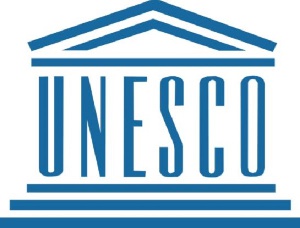- Home - News
- TWI News | TV
- Polls
- Year In Review
- News Archive
- Crime & Punishment
- Politics
- Regional
- Editorial
- Health
- Ghanaians Abroad
- Tabloid
- Africa
- Religion
- Election 2020
- Coronavirus
- News Videos | TV
- Photo Archives
- News Headlines
- Press Release
General News of Friday, 18 October 2019
Source: ghananewsagency.org
Water management is crucial to Africa's sustainable development - UNESCO
UNESCO has reiterated that prudent water resources management is crucial to Africa's sustainable socio-economic development and the alleviation of poverty.
Mr Abdourahamane Diallo, Head of Office and Representative of UNESCO to Ghana, said the African continent boasts of rich endowment of natural resources including freshwater, although these water resources play a central role in the economy of countries, they were one of the most threatened ecosystems.
He said in the 21st Century, their aspirations and needs had resulted in various demographic dynamics that were mostly not sustainable and at the same time negatively impact on their climate and subsequently their water resources.
Mr Diallo said this at the UNESCO World Water Assessment Programme (UNESCO WWAP) side-event on strengthening coordinated water and climate actions in Africa at the ongoing Climate Chance Summit in Accra.
The side-event on the theme "Strengthening Coordinated Water and Climate Actions in Africa", was organised by UNESCO WWAP, in collaboration with the UNESCO Office in Accra, UNESCO Office in Nairobi and their partners; United Nations Economic Commission for Africa (UNECA), Local Government for Sustainability (ICLEI) and the Alliance for Global Water Adaptation (AGWA).
Mr Diallo said water was the world's most precious natural resource – its availability and quality not only impacts human well-being but also essential ecosystems and their very existence.
"With each passing day, we are evermore faced with the challenge of declining water quality and increasing uncertainty of water availability due to climate change.
As an international organisation, UNESCO, through its intergovernmental programmes such as the International Hydrological Programme (IHP) is devoted to water research, water resources management, and education and capacity building tailored to member state's needs," he said.
"The IHP programme has gone through several transformations from an internationally coordinated hydrological research programme into an encompassing, holistic programme to facilitate education and capacity building, and enhance water resources management and governance."
He said the Programme was interdisciplinary and uses a holistic approach to watershed and aquifer management, with inclusion of social dimension of water resources management. It also promotes hydrological and freshwater research.
Mr Diallo said it was in this vein that the Organisation founded the WWAP in 2000 to provide a global periodic overview of the quality and quantity, use and management of freshwater resources.
He noted that since its establishment, WWAP works to equip water managers and key decision-makers with the information, data, tools and skills necessary to develop and implement sustainable water policies.
"The challenges we are currently facing or foresee with respect to managing our water resources vis-à-vis the impact of climate change on these resources are very complex and therefore would require an interdisciplinary approach in trying to address them," he said.
"As a continent, Africa needs to pull together its intellectual and technical capacity to address these challenges".
Mr Diallo said one of the key messages from the regional evaluation entitled “Water as cross-cutting factor in the SDGs under review at the HLPF 2019 in Africa”, called on African leaders to acknowledge and invest in stronger links between the Sustainable Development Goal (SDG) 6 and the other water-related SDGs, as this was an efficient and effective strategy for lifting millions of people from poverty and achieving the African Water Vision 2025 (AWV), the 2030 Agenda and the African Union Agenda 2063.
"Indeed, without clean water and sanitation, we cannot attain sustainable cities and communities, which is Goal 11," Mr Diallo said.
"Without access to clean water, our girl-child will continue to travel longer distances in search of water instead of being in school," therefore, their dream of attaining equitable and quality education for all and gender equality, which were Goals 4 and 5 respectively, would not become a reality.











